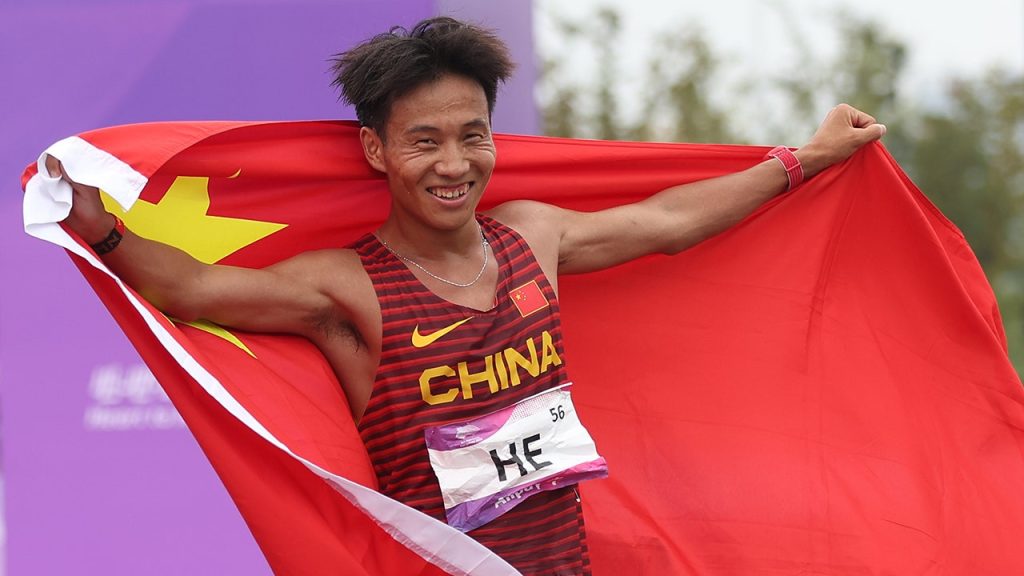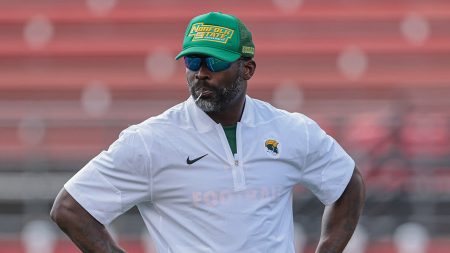He Jie, China’s top long-distance runner, was stripped of his first-place medal from the Mengniu Beijing Half Marathon after an investigation revealed that three other runners from Africa had purposely slowed down to let him pass. Organizers made the decision after video footage from the race showing He trailing behind Kenyan and Ethiopian runners went viral. It was later discovered that the African runners had been invited to serve as pacemakers for He, a role that the main organizers were unaware of. All four runners, including He, were disqualified and forced to return their medals and award money. Additionally, the main organizer lost its right to host the event.
Despite winning the Asian Games men’s marathon and holding the Chinese national record in the event, He was removed from his first-place finish at the Beijing Half Marathon. The runner from China finished the race with a time of one hour, three minutes, and 44 seconds, but was disqualified for benefiting from the deliberate slowing down of the African competitors. The incident sparked controversy and led to apologies from the organizers for not catching the mistake sooner. It was a disappointing turn of events for both He and the organizers, as the race was meant to showcase athletic competition rather than strategic manipulation.
The investigation into the incident revealed that the African runners had been brought in as pacemakers by a race sponsor, without the knowledge of the main organizers. This revelation further tainted the race and cast a shadow over He’s victory. The disqualification of all four runners sent shockwaves through the running community, highlighting the importance of fair play and competitive integrity in sports. The incident led to consequences not only for the disqualified runners but also for the organizing committee, which lost its right to host future events as a result of the controversy.
He Jie’s disqualification from the Mengniu Beijing Half Marathon dealt a blow to his reputation as China’s top long-distance runner, despite his previous accomplishments in the sport. The incident shed light on the use of pacemakers in competitive races and raised questions about the boundaries of sportsmanship and fair competition. The fallout from the controversy served as a cautionary tale for athletes and organizers alike, emphasizing the need for transparency and accountability in the world of professional racing. He and the other disqualified runners were forced to return their medals and prize money, facing the consequences of their actions in a highly publicized scandal.
The apology issued by the organizers of the Beijing Half Marathon reflected a sense of regret and responsibility for the oversight that led to the disqualification of the top runners. The incident served as a lesson in the importance of vigilance and compliance with competitive regulations to avoid compromising the integrity of sports events. He’s removal from his first-place finish highlighted the ethical dilemmas that can arise in the pursuit of victory, signaling a need for greater scrutiny and oversight in athletic competitions. The fallout from the controversy served as a wake-up call for both participants and organizers to prioritize fairness and honesty in the world of competitive running.
Overall, the disqualification of He Jie and the African pacemakers at the Mengniu Beijing Half Marathon exposed a breach of competitive ethics and integrity that had far-reaching consequences for all involved. The incident shed light on the complexities of professional racing and the challenges of maintaining a level playing field for athletes from different backgrounds. Moving forward, the incident served as a reminder of the importance of upholding the principles of sportsmanship and fair competition in all aspects of athletic events. It also underscored the consequences of failing to adhere to these principles, as seen in the repercussions faced by He and the other disqualified runners, as well as the organizers of the event.













